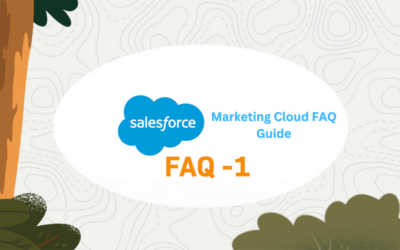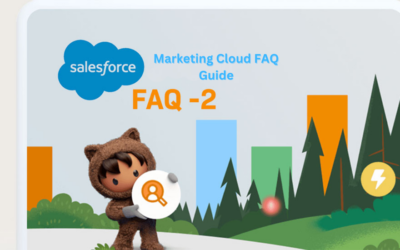In today’s ever-evolving digital landscape, the role of a HubSpot Marketing Hub Admin has transcended traditional marketing boundaries. It has become a pivotal position that requires a deep understanding of marketing automation, content management, lead generation, and data analytics. Your HubSpot Marketing Hub Admin is not just a technical expert but a strategic architect who can craft personalized customer journeys and optimize every facet of your marketing operations.
As businesses increasingly recognize the value of inbound marketing and the power of HubSpot, the demand for skilled administrators has surged. Your chosen candidate will not only be responsible for navigating the intricacies of HubSpot but also for aligning marketing efforts with overarching business objectives. In this era of data-driven decision-making, they will be the guardians of your marketing data, ensuring its accuracy and utilizing it to drive ROI. The following 20 interview questions and detailed answers are designed to empower you to make a well-informed decision when selecting your HubSpot Marketing Hub Admin, someone who will not just manage the platform but orchestrate marketing success. If you need assistance with Salesforce CRM setup and optimization, companies like CRM Force can provide valuable expertise and support.
1- What is lead source tracking in HubSpot, and how can it help in evaluating marketing channel effectiveness?
Answer: Lead source tracking in HubSpot attributes leads to specific marketing channels or campaigns. It helps evaluate which channels are generating the most valuable leads.
2- How can HubSpot CRM integration be used to create a unified customer view for better customer relationship management?
Answer: HubSpot CRM integration consolidates customer data from various touchpoints, providing a unified view. This helps in delivering personalized experiences and improving customer relationships.
3- What HubSpot certifications have you completed, and how have they enhanced your proficiency in using the platform?
Answer: Candidates should mention any HubSpot certifications they have completed, such as HubSpot Marketing Software Certification, Inbound Certification, or HubSpot CMS for Developers Certification. These certifications demonstrate expertise in using HubSpot effectively.
4- How do you stay updated with the latest HubSpot features and updates, and why is continuous learning important in marketing technology?
Answer: Continuous learning is crucial in the ever-evolving field of marketing technology. Candidates should describe their methods for staying updated, such as attending webinars, reading HubSpot blogs, or participating in the HubSpot Community.
5- How do you approach optimizing marketing campaigns in HubSpot when facing declining performance metrics?
Answer: Candidates should explain their approach to diagnosing performance issues, making data-driven decisions, and implementing changes to improve campaign performance.
6- What strategies would you recommend to a company that wants to migrate from another marketing automation platform to HubSpot?
Answer: Candidates should outline a migration plan, including data transfer, training, and ensuring a seamless transition to HubSpot while minimizing disruptions.
7- What is the HubSpot CRM API, and how can it be used to integrate HubSpot with other applications?
Answer: The HubSpot CRM API is a set of tools and protocols that allow for the integration of HubSpot CRM data with other applications. It can be used to automate data syncing, retrieve and update contact information, and streamline business processes by connecting HubSpot with third-party tools.
8- How can you use HubSpot workflows to trigger actions based on contact behavior, such as opening emails or visiting specific website pages?
Answer: In HubSpot, you can set up workflows with conditional branching to trigger actions based on contact behavior. For example, you can create a workflow that sends a follow-up email to contacts who opened a specific email or enrolled them in a lead nurturing campaign if they visited certain website pages.
9- What is the HubSpot Sources Report, and how can it help in understanding the effectiveness of marketing channels?
Answer: The HubSpot Sources Report provides insights into the sources of traffic and leads, including organic search, paid advertising, social media, and more. It helps in evaluating the performance of marketing channels and allocating resources effectively.
10- How can HubSpot’s content strategy tools assist in creating and managing content for SEO optimization?
Answer: HubSpot’s content strategy tools help in keyword research, content creation, and optimization for SEO. They provide suggestions for optimizing content, tracking keyword rankings, and organizing content into topic clusters for better search engine visibility.
11- How does HubSpot handle email deliverability, and what best practices can you implement to ensure your emails reach the inbox rather than the spam folder?
Answer: HubSpot employs various practices to enhance email deliverability, including authentication (SPF and DKIM records), sender reputation monitoring, and email validation. To ensure inbox placement, it’s crucial to maintain a clean email list, send engaging content, and adhere to email marketing best practices.
12- How can HubSpot’s social media monitoring tools be used to track brand mentions and engage with customers on social platforms?
Answer: HubSpot’s social media monitoring tools allow you to track brand mentions and keywords, schedule social media posts, and engage with customers directly from the platform. This helps in managing brand reputation and building customer relationships on social media.
13- How can A/B testing be used to optimize landing pages in HubSpot, and what key elements should be tested for improved conversion rates?
Answer: A/B testing for landing pages in HubSpot involves testing elements like headlines, call-to-action buttons, images, and form fields to determine which combinations result in higher conversion rates. By identifying and implementing changes that resonate with the audience, landing pages can be optimized for better performance.
14- What is the HubSpot Smart Content feature, and how can it be leveraged to deliver personalized website experiences? Provide examples of dynamic content personalization.
Answer: HubSpot’s Smart Content feature allows for dynamic content personalization based on user attributes, behavior, and lifecycle stage. Examples include showing different CTAs to first-time visitors compared to leads and displaying location-specific content to international audiences.
15- How HubSpot’s Marketing Analytics tools can assist in tracking ROI and attributing revenue to marketing efforts.
Answer: HubSpot’s Marketing Analytics tools provide insights into revenue attribution by tracking the entire customer journey from initial interaction to conversion. It helps in understanding which marketing efforts directly contributed to revenue and calculating ROI accurately.
16- What is the role of closed-loop reporting in HubSpot, and how does it bridge the gap between marketing and sales teams?
Answer: Closed-loop reporting in HubSpot connects marketing efforts with sales outcomes by tracking leads through the entire sales cycle. It helps in aligning marketing and sales teams by providing visibility into how marketing activities impact revenue.
17- What is HubSpot’s App Marketplace, and how can businesses find and install integrations to extend the platform’s functionality?
Answer: HubSpot’s App Marketplace is a repository of pre-built integrations and apps that can be installed to extend HubSpot’s functionality. Businesses can browse the marketplace, choose relevant integrations, and install them directly into their HubSpot account to enhance their marketing and sales operations.
18- What steps would you take to ensure data quality and cleanliness within HubSpot CRM, and why is it essential for marketing and sales operations?
Answer: Maintaining data quality within HubSpot CRM involves regular data hygiene practices, such as deduplication, data validation, and data enrichment. Clean data is essential for accurate reporting, lead nurturing, and effective marketing and sales efforts, as it ensures that decisions are based on reliable information.
19- How can you set up lead scoring in HubSpot, and what factors or behaviors should be considered when assigning lead scores?
Answer: Lead scoring in HubSpot can be set up by assigning numerical values to contact interactions, such as website visits, email engagement, and form submissions. Factors like engagement frequency, recency, and demographic data can be considered when assigning lead scores. A lead scoring system helps prioritize leads based on their readiness to convert.
20- What are SPF and DKIM, and how do they contribute to email deliverability in HubSpot?
Answer: SPF (Sender Policy Framework) and DKIM (DomainKeys Identified Mail) are email authentication protocols that help verify the legitimacy of email senders. Implementing SPF and DKIM records in HubSpot ensures that emails are properly authenticated, reducing the likelihood of them being marked as spam and improving deliverability rates.
Conclusion
In closing, the role of a Marketing Hub Admin is pivotal in today’s digital marketing landscape, where every click, interaction, and engagement matters. The comprehensive list of interview questions and detailed answers provided in this article has been carefully curated to assist you in making a well-informed decision when evaluating potential candidates. The right Marketing Hub Admin is not just a technical expert but a strategic visionary who can leverage HubSpot’s capabilities to elevate your marketing strategies, nurture leads, and maximize ROI.
As you move forward in your hiring process, remember that the Marketing Hub Admin you select will play a vital role in shaping the future of your marketing endeavors. Their proficiency in HubSpot, combined with their ability to devise innovative marketing strategies, will be the driving force behind your organization’s digital marketing success. So, invest the time and effort to choose a candidate who not only understands the technical intricacies but also possesses the creativity and adaptability to keep your marketing efforts at the forefront of the industry. With the right Marketing Hub Admin by your side, your business can thrive in the ever-evolving digital landscape. To learn more about how CRM Force can assist you in recruiting top CRM talent and optimizing your CRM strategies for successful drip campaigns, contact us today. Together, let’s maximize your customer engagement Contact Us today.





